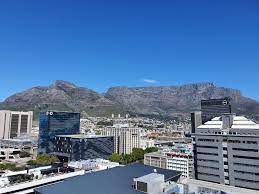A new report by the Cape Town Central City Improvement District (CCID) shows the CBD economy remains resilient, despite economic pressures.
A key finding in the latest edition of the State of Cape Town Central City Report 2021 – A Year in Review (SCCR) shows new property investment in the Central City, worth more than R5.7 billion, was recorded last year.
The 10th edition of the report reflects on the economic climate in the CBD across the previous year.
A total of 28 property developments came on stream last year. This includes 13 completed developments or redevelopments worth more than R2.5 billion, 12 projects that were under construction worth more than R1.7 billion and three projects in the planning phase worth over R1.5 billion.
Five of the 13 completed property investments are either hotels or aparthotels, which have already opened. These include the aparthotel The Rockefeller (R500 million), Hotel Sky (R400 million), aparthotel BlackBrick Cape Town (R107 million), The Capital 15 on Orange (R20 million) and the Old Bank Hotel (value to be confirmed).
Read more: Significant recovery in tourism numbers
Of the projects still under construction in 2021, more than half were commercial buildings, with commercial property owners – have borne the brunt of the Covid-induced Work From Home and hybrid work trends – moving swiftly to re-imagine existing workplaces to make them more attractive and people-friendly. Only two commercial buildings were completed in 2021.
SUSTAINED CONFIDENCE IN THE CBD
Data in the annual report – which is a sought-after investment tool that is indispensable to investors, developers and retailers seeking to invest in the most successful and dynamic city centre in South Africa – shows sustained confidence in the development and business investment potential of the Central City, says CCID Board Chairman Rob Kane.
“The resounding message emanating from this report on the CBD’s economic performance in 2021 remains positive: the Cape Town inner city once again proved itself resilient in the face of economic hardship and uncertainty caused by the pandemic.”
The myriad residential and mixed-use properties coming onto the CBD property market indicate that agile developers are confident there is a market for buyers, says Kane.

Among other key findings in the report are that:
- The all-important retail sector – which makes up 1 163 of the 2 981 entities doing business in the CBD – remained stable in 2021, despite lagging economic conditions. A total of 81 new stores opened in Central City last year, with 44 closing down, resulting in an overall increase of 37 retail entities.
- Retail confidence in the CBD rebounded in the final months of 2021, and has continued in 2022, with the majority of retailers surveyed in the CCID’s quarterly Business Confidence Index indicating they were “satisfied” with current business conditions;
- The total volume of retail space in the Cape Town CBD at end of 2021 amounted to 271 040 m². This is an 0.3 % increase in 2020 following the completion of new developments.
- The total vacancy rate of retail space in the Cape Town CBD – 26 747 m² – amounted to 9.9 % of the total retail space available. This is less than the vacancy rate in 2020, which was 11.5 %.
VALUE OF PROPERTY
The most significant indicator of investor confidence in Cape Town Central City is the sustained growth in the overall official value of all property in the CBD from more than R12.2 billion in 2016/17 to R43.8 billion in 2018/19, according to the City of Cape Town’s property evaluation.
In its assessment of the commercial sector, the report notes that CT CBD office vacancy rates increased from 14.6 % in 2020 to 16.1 % in 2021, which is slightly higher than the national average of 16 %, prompting inner-city landlords to repurpose vacant space.
Office space in the CBD available for rent increased by 14 936 m² during 2021, due to a 14 306 m² increase in A-grade office space.
Nevertheless, the Cape Town CBD offered the city’s most competitively priced premium office space in Q4 2021 at R195 per m².


